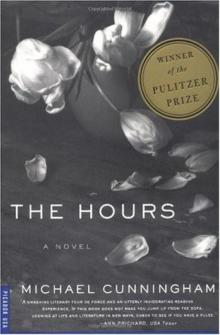- Home
- Michael Cunningham
A Wild Swan
A Wild Swan Read online
Begin Reading
Table of Contents
About the Author
Copyright Page
Thank you for buying this
Farrar, Straus and Giroux ebook.
To receive special offers, bonus content,
and info on new releases and other great reads,
sign up for our newsletters.
Or visit us online at
us.macmillan.com/newslettersignup
For email updates on Michael Cunningham, click here.
For email updates on Yuko Shimizu, click here.
The author and publisher have provided this e-book to you for your personal use only. You may not make this e-book publicly available in any way. Copyright infringement is against the law. If you believe the copy of this e-book you are reading infringes on the author’s copyright, please notify the publisher at: us.macmillanusa.com/piracy.
DIS. ENCHANT.
Most of us are safe. If you’re not a delirious dream the gods are having, if your beauty doesn’t trouble the constellations, nobody’s going to cast a spell on you. No one wants to transform you into a beast, or put you to sleep for a hundred years. The wraith disguised as a pixie isn’t thinking of offering you three wishes, with doom hidden in them like a razor in a cake.
The middling maidens—the ones best seen by candlelight, corseted and rouged—have nothing to worry about. The pudgy, pockmarked heirs apparent, who torment their underlings and need to win at every game, are immune to curse and hex. B-list virgins do not excite the forces of ruination; callow swains don’t infuriate demons and sprites.
Most of us can be counted on to manage our own undoings. Vengeful entities seek only to devastate the rarest, the ones who have somehow been granted not only bower and trumpet but comeliness that startles the birds in the trees, coupled with grace, generosity, and charm so effortless as to seem like ordinary human qualities.
Who wouldn’t want to fuck these people up? Which of us does not understand, in our own less presentable depths, the demons and wizards compelled to persecute human mutations clearly meant, by deities thinking only of their own entertainment, to make almost everyone feel even lonelier and homelier, more awkward, more doubtful and blamed, than we actually are?
If certain manifestations of perfection can be disgraced, or disfigured, or sent to walk the earth in iron shoes, the rest of us will find ourselves living in a less arduous world; a world of more reasonable expectations; a world in which the appellations “beauty” and “potency” can be conferred upon a larger cohort of women and men. A world where praise won’t be accompanied by an implied willingness to overlook a few not-quite qualities, a little bit of less-than.
Please ask yourself. If you could cast a spell on the ludicrously handsome athlete and the lingerie model he loves, or on the wedded movie stars whose combined DNA is likely to produce children of another species entirely … would you? Does their aura of happiness and prosperity, their infinite promise, irritate you, even a little? Does it occasionally make you angry?
If not, blessings on you.
If so, however, there are incantations and ancient songs, there are words to be spoken at midnight, during certain phases of the moon, beside bottomless lakes hidden deep in the woods, or in secret underground chambers, or at any point where three roads meet.
These curses are surprisingly easy to learn.
A WILD SWAN
Here in the city lives a prince whose left arm is like any other man’s and whose right arm is a swan’s wing.
He and his eleven brothers were turned into swans by their vituperative stepmother, who had no intention of raising the twelve sons of her husband’s former wife (whose pallid, mortified face stared glassily from portrait after portrait; whose unending pregnancies had dispatched her before her fortieth birthday). Twelve brawling, boastful boys; twelve fragile and rapacious egos; twelve adolescences—all presented to the new queen as routine aspects of her job. Do we blame her? Do we, really?
She turned the boys into swans, and commanded them to fly away.
Problem solved.
She spared the thirteenth child, the youngest, because she was a girl, though the stepmother’s fantasies about shared confidences and daylong shopping trips evaporated quickly enough. Why, after all, would a girl be anything but surly and petulant toward the woman who’d turned her brothers into birds? And so—after a certain patient lenience toward sulking silences, after a number of ball gowns purchased but never worn—the queen gave up. The princess lived in the castle like an impoverished relative, fed and housed, tolerated but not loved.
The twelve swan-princes lived on a rock far out at sea, and were permitted only an annual, daylong return to their kingdom, a visit that was both eagerly anticipated and awkward for the king and his consort. It was hard to exult in a day spent among twelve formerly stalwart and valiant sons who could only, during that single yearly interlude, honk and preen and peck at mites as they flapped around in the castle courtyard. The king did his best at pretending to be glad to see them. The queen was always struck by one of her migraines.
Years passed. And then … At long last …
On one of the swan-princes’ yearly furloughs, their little sister broke the spell, having learned from a beggar woman she met while picking berries in the forest that the only known cure for the swan transformation curse was coats made of nettles.
However. The girl was compelled to knit the coats in secret, because they needed (or so the beggar woman told her) not only to be made of nettles, but of nettles collected from graveyards, after dark. If the princess was caught gathering nettles from among tombstones, past midnight, her stepmother would surely have accused her of witchcraft, and had her burned along with the rest of the garbage. The girl, no fool, knew she couldn’t count on her father, who by then harbored a secret wish (which he acknowledged not even to himself) to be free of all his children.
The princess crept nightly into local graveyards to gather nettles, and spent her days weaving them into coats. It was, as it turned out, a blessing that no one in the castle paid much attention to her.
She had almost finished the twelve coats when the local archbishop (who was not asked why he himself happened to be in a graveyard so late at night) saw her picking nettles, and turned her in. The queen felt confirmed in her suspicions (this being the girl who shared not a single virginal secret, who claimed complete indifference to shoes exquisite enough to be shown in museums). The king, unsurprisingly, acceded, hoping he’d be seen as strong and unsentimental, a true king, a king so devoted to protecting his people from the darker forces that he’d agree to the execution of his own daughter, if it kept his subjects safe, free of curses, unafraid of demonic transformations.
Just as the princess was about to be tied to the stake, however, the swan-brothers descended from the smoky sky, and their sister threw the coats onto them. Suddenly, with a loud crackling sound, amid a flurry of sparkling wind, twelve studly young men, naked under their nettle coats, stood in the courtyard, with only a few stray white feathers wafting around them.
Actually …
… there were eleven fully intact princes and one, the twelfth, restored save for a single detail—his right arm remained a swan’s wing, because his sister, interrupted at her work, had had to leave one coat with a missing sleeve.
It seemed a small-enough price to pay.
Eleven of the young men soon married, had children, joined organizations, gave parties that thrilled everyone, right down to the mice in the walls. Their thwarted stepmother, so raucously outnumbered, so unmotherly, retreated to a convent, which inspired the king to fabricate memories of abiding loyalty to his transfigured sons and helplessness before his harridan of a wife, a version the boys were more tha
n willing to believe.
End of story. “Happily ever after” fell on everyone like a guillotine’s blade.
Almost everyone.
It was difficult for the twelfth brother, the swan-winged one. His father, his uncles and aunts, the various lords and ladies, were not pleased by the reminder of their brush with such sinister elements, or their unskeptical willingness to execute the princess as she worked to save her siblings.
The king’s court made jokes about the swan-winged prince, which his eleven flawlessly formed brothers took up readily, insisting they were meant only in fun. The young nieces and nephews, children of the eleven brothers, hid whenever the twelfth son entered a room, and giggled from behind the chaises and tapestries. His brothers’ wives asked repeatedly that he do his best to remain calm at dinner (he was prone to gesticulating with the wing while telling a joke, and had once flicked an entire haunch of venison against the opposite wall). The palace cats tended to snarl and slink away whenever he came near.
Finally he packed a few things and went out into the world. The world, however, proved no easier for him than the palace had been. He could get only the most menial of jobs. He had no marketable skills (princes don’t), and just one working hand. Every now and then a woman grew interested, but it always turned out that she was briefly drawn to some Leda fantasy or, worse, hoped her love could bring him back his arm. Nothing ever lasted. The wing was awkward on the subway, impossible in cabs. It had to be checked constantly for lice. And unless it was washed daily, feather by feather, it turned from the creamy white of a French tulip to a linty, dispiriting gray.
He lived with his wing as another man might live with a dog adopted from the pound: sweet-tempered, but neurotic and untrainable. He loved his wing, helplessly. He also found it exasperating, adorable, irritating, wearying, heartbreaking. It embarrassed him, not only because he didn’t manage to keep it cleaner, or because getting through doors and turnstiles never got less awkward, but because he failed to insist on it as an asset. Which wasn’t all that hard to imagine. He could see himself selling himself as a compelling mutation, a young god, proud to the point of sexy arrogance of his anatomical deviation: ninety percent thriving muscled man-flesh and ten percent glorious blindingly white angel wing.
Baby, these feathers are going to tickle you halfway to heaven, and this man-part is going to take you the rest of the way.
Where, he asked himself, was that version of him? What dearth of nerve rendered him, as year followed year, increasingly paunchy and slack-shouldered, a walking apology? Why was it beyond his capacities to get back into shape, to cop an attitude, to stroll insouciantly into clubs in a black lizardskin suit with one sleeve cut off?
Yeah, right, sweetheart, it’s a wing, I’m part angel, but trust me, the rest is pure devil.
He couldn’t seem to manage that. He might as well have tried to run a three-minute mile, or become a virtuoso on the violin.
He’s still around. He pays his rent one way or another. He takes his love where he can find it. In late middle age he’s grown ironic, and cheerful in a toughened, seen-it-all way. He’s become possessed of a world-weary wit. He’s realized he can either descend into bitterness or become a wised-up holy fool. It’s better, it’s less mortifying, to be the guy who understands that the joke’s on him, and is the first to laugh when the punch line lands.
Most of his brothers back at the palace are on their second or third wives. Their children, having been cosseted and catered to all their lives, can be difficult. The princes spend their days knocking golden balls into silver cups, or skewering moths with their swords. At night they watch the jesters and jugglers and acrobats perform.
The twelfth brother can be found, most nights, in one of the bars on the city’s outer edges, the ones that cater to people who were only partly cured of their curses, or not cured at all. There’s the three-hundred-year-old woman who wasn’t specific enough when she spoke to the magic fish, and found herself crying, “No, wait, I meant alive and young forever,” into a suddenly empty sea. There’s the crownletted frog who can’t seem to truly love any of the women willing to kiss him, and break the spell. There’s the prince who’s spent years trying to determine the location of the comatose princess he’s meant to revive with a kiss, and has lately been less devoted to searching mountain and glen, more prone to bar-crawling, given to long stories about the girl who got away.
In such bars, a man with a single swan wing is considered lucky.
His life, he tells himself, is not the worst of all possible lives. Maybe that’s enough. Maybe that’s what there is to hope for—that it merely won’t get any worse.
Some nights, when he’s stumbled home smashed (there are many such nights), negotiated the five flights up to his apartment, turned on the TV, and passed out on the sofa, he awakes, hours later, as the first light grays the slats of the venetian blinds, with only his hangover for company, to find that he’s curled his wing over his chest and belly; or rather (he knows this to be impossible, and yet…) that the wing has curled itself, by its own volition, over him, both blanket and companion, his devoted resident alien, every bit as imploring and ardent and inconvenient as that mutt from the pound would have been. His dreadful familiar. His burden, his comrade.
CRAZY OLD LADY
It’s the solitude that slays you. Maybe because you’d expected ruin to arrive in a grander and more romantic form.
You ran, as your mother put it, with a fast crowd. You threw off your schoolgirl plaids early, lied your way to adulthood in taverns three towns away, encouraged the men there to put first their fingers and then other parts into whatever interlude of skin you were able to offer them in the dimness of alleys, the little patches of neglected grass that passed for parks.
You went through three husbands, and joked to your girlfriends that with each marriage you’d thought you’d reached bottom, only to find that the elevator of love went to still lower floors. You decided against husband number four because, by then, even you could see the nascent defeat in his plans for the future. You could hear the muttered, gin-marinated accusations to come.
After you’d dispatched the fourth candidate, you embarked on a career of harshly jovial sluttishness. You were in your forties. By then your girlfriends had all married tolerable men and gradually, over time, found more and more reasons not to meet you for drinks (Sorry, but the children wear me out; I’d love to, but you know how my husband gets when I come home loaded).
It struck you, during your forties and then your fifties, as a personal victory. You weren’t sweeping splintery floorboards as your husband sat bemoaning the bleak fate you’d helped make for him, the job that barely paid for heat and light; you weren’t pressing a fifth infant to breasts increasingly unwilling to produce more than thimblefuls of milk. Your solution to your slackening body was squeezing it into ever-tighter dresses until, by the time sixty loomed, it seemed as if the dresses themselves held you upright on the bar stools; that if they were cut away, you’d spill onto the floor and lie there, helpless, a pink-white muddle of overused flesh.
You let that lost tooth remain a black square in your knowing smile. You dyed your hair: circus orange, followed by a maroon deep enough to verge on purple, followed by white-hot blond.
You were undeluded. You believed you were undeluded. You were thinking, “House of the Rising Sun”—a wised-up, whorish finish, with its scattered rhinestones still sewn on here and there. You imagined, in the long run, a perversely glorious, housebound lasciviousness; a reputation for insanity among the zealots who worshipped banal virtues as if they were glory incarnate. You expected late-night visits from the local young bucks (yes, you thought about your old girlfriends’ sons), in search of the instruction you’d provide (Put your fingertip there, right there, pinch gently, very gently, I promise you she’ll love it); boys who’d be grateful for the nights of ecstatic transport you’d visit upon them, and, more touching still, for the mornings they’d wake with faces buried in your
breasts, abashed, embarrassed, eager to depart, in which endeavor you’d encourage them (you’d cultivate no hint of desperation, never urge them to stay). During the brief interludes before they jumped up to search for their socks and underwear, you’d assure them that they were marvels, they were warriors; gifts in the making for some girl who’d be thankful forever for what you’d taught them in a single night.
The boys would grin with nervous self-admiration as they stumbled back into their clothes. They’d know the truth when they heard it. They’d understand: You were seeding your town with suitable husbands. You were a goddess (a minor goddess, but still) of carnal knowingness; you were seeing to it that the youth of the region knew not only where the clitoris is, but what to do with it. You were cultivating, in absentia, a cohort of girls (might a few of them learn about it, might they pay you an occasional visit?) whose nights in bed with their husbands would feel like proper compensation for their days of washing and ironing.
That future, that particular old age, however, refused to occur.
It had to do, most likely, with the accident (the backfiring car, the horse) that left you with that gimp leg. It had to do with the tiny apartment over the laundry (who expected rents to go up the way they did?), where the smell of mouse pellets and dry-cleaning chemicals seemed only to be made worse by the veils of perfume you sprayed around. What boy would want to come there?
It had to do as well with the surprising timidity of youth; the endangered-species status (or so it seemed) of the fearless princelings you remembered from your own early days—the boys (old men now, the ones who were still alive at all) who’d been drunk on confidence, touching in their unpracticed attempts at swagger. They’d been replaced by this generation of alarmingly well-behaved man-children, who seemed content to learn about women at the hands of girls who knew almost as little about their own bodies as the boys who fumbled with them.

 The Hours
The Hours Land's End: A Walk in Provincetown
Land's End: A Walk in Provincetown Golden States
Golden States A Wild Swan
A Wild Swan A Home at the End of the World
A Home at the End of the World Flesh and Blood
Flesh and Blood Specimen Days
Specimen Days Land's End
Land's End By Nightfall
By Nightfall Hours
Hours